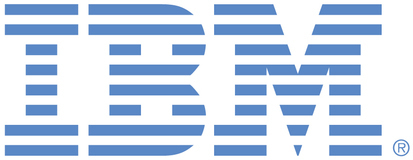
This portal is to open public enhancement requests against the products and services belonging to IBM Sustainability Software. To view all of your ideas submitted to IBM, create and manage groups of Ideas, or create an idea explicitly set to be either visible by all (public) or visible only to you and IBM (private), use the IBM Unified Ideas Portal (https://ideas.ibm.com).
Shape the future of IBM!
We invite you to shape the future of IBM, including product roadmaps, by submitting ideas that matter to you the most. Here's how it works:
Search existing ideas
Start by searching and reviewing ideas and requests to enhance a product or service. Take a look at ideas others have posted, and add a comment, vote, or subscribe to updates on them if they matter to you. If you can't find what you are looking for,
Post your ideas
Post an idea.
Get feedback from the IBM team and other customers to refine your idea.
Follow the idea through the IBM Ideas process.
Specific links you will want to bookmark for future use
Welcome to the IBM Ideas Portal (https://www.ibm.com/ideas) - Use this site to find out additional information and details about the IBM Ideas process and statuses.
IBM Unified Ideas Portal (https://ideas.ibm.com) - Use this site to view all of your ideas, create new ideas for any IBM product, or search for ideas across all of IBM.
ideasibm@us.ibm.com - Use this email to suggest enhancements to the Ideas process or request help from IBM for submitting your Ideas.
In our Company, we are using the standard DOORS Archive feature to backup data (on project-level only). I defined to not use cross-project links as they cannot be restored, it may (is) happen, that this links are used by projects.
Anyway, we have the following use-cases in using DOORS archives
- for backup to be able to "quickly" restore complete projects (but this happens very rare and only if user accidentally delete many data :)
- to restore the complete project or parts of the archive to duplicate/branch/share the restored data in other projects
- to relocate or share the complete project in other (away) DOORS databases
Whilst the first two topics are more-or-less easy to handle, the last topic can be a nightmare. Thinking of huge archives (>1g; and we indeed have archives which are larger than 40g and one is about 80g!!) which can not be handled easily.
Restoring DOORS data creates new DB-items and this is sometimes not helpful to insert other large DOORS-DB-data (archives). Thinking in relocating data from one DB to another DB then is more complex regarding clean-up original data to minimize the size and planning the downtime of projects.
So a "merge" feature can be very helpful. This feature merges the archive to already existing data in DOORS (i.e. mapped by the item-name within that hierarchy or a "mapping-table" created whilst first restore).
Additionally as already restored data (i.e. fixed baselines) must not be restored twice, the restore performance shall increase drastically.
In my case, current data can be updated as here I know that the data is overwritten and I can inform users to not work on that data.
Thank you very much,
Dirk.